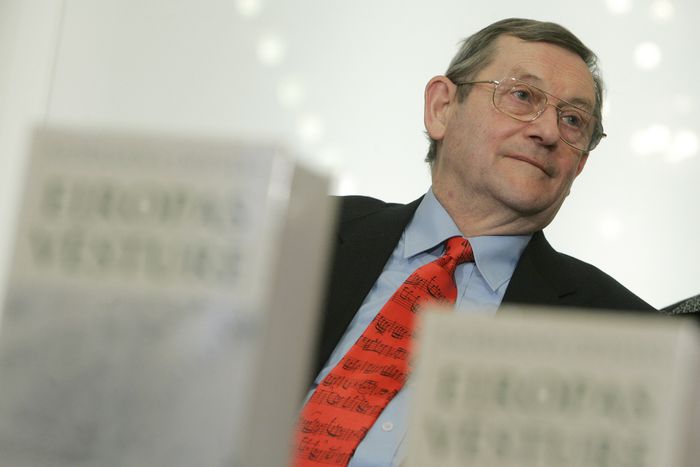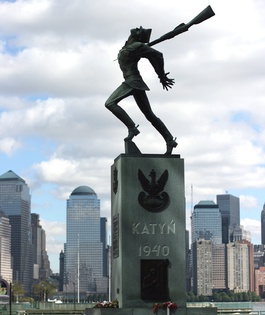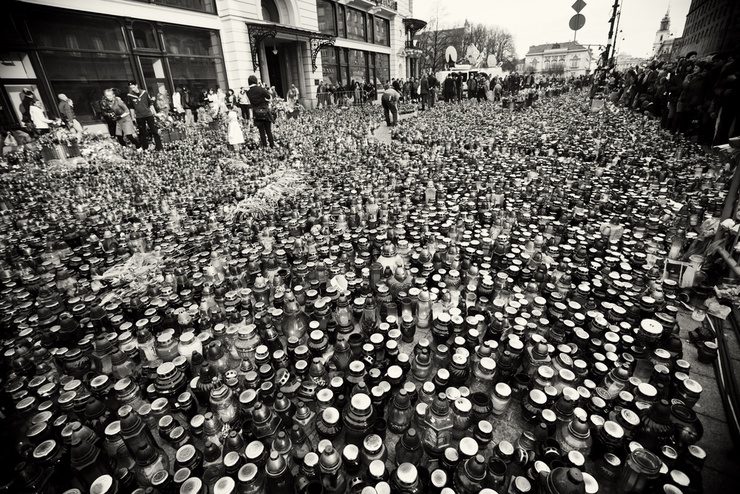
Norman Davies: 'Go to London and ask anyone about Katyn...'
Published on
Translation by:
Cafebabel ENG (NS)The leading British writer historian on Europe, who is specialised on the UK and Poland in particular, on falsified history and the cases of Putin, Germany and Napoleon's breakfasts. Read the translation of an interview he accorded to cafebabel.pl, in Polish
cafebabel.com: Is history a reconstruction of facts or its creation?
Norman Davies: Nothing is 100% sure in history. Firstly, facts only make sense in context. For example, Napoleon ate breakfast. The information which could be potentially interesting for the French emperor's biographers is the date on which he ate that breakfast. Food historians would like to know what he ate – eggs and bacon or maybe yoghurt. Every historian picks and chooses out of millions, billions, even trillions of facts according to what best suits their accounts. Facts are selected and established as events by historians, making them effectively uncertain. To top it all off, every historian pays attention to something else. The worst ones are those who claim to know the historical truth and claiming that other don't – that's unacceptable.
cafebabel.com: What examples have there been of rewriting history?
Norman Davies: History is constantly being rewritten in every country. No-one can preserve the truth forever. Perspectives change, and history rewrites itself. The story of black people in the United States is completely different today to how it was reported only forty years ago. Not long ago the majority of English historians didn't see the sense in the activity of Irish republicans. Only now are they recognising the rights they had. Do you think that the Russians don't want to own up to what happened in Katyn, or are the Brits ready to do it? Why would the Brits, who had nothing to do with this tragedy, want to talk about Katyn indeed? It's been hammered into them that the goodies – say, Roosevelt, Churchill and Stalin - won the war. Of course no one can spit on them after that. Everyone knows that the baddies, aka in Katyn, were the Germans and the Germans alone. Go to London and ask anyone about Katyn – no-one has a clue about what happened.
cafebabel.com: How can these discrepancies in the perception of facts influence the process of European integration? Could it create a barrier for the further development of the EU?
Norman Davies: Of course. However, the freedom of expression is the condition with which historiography should develop further. Not being able to debate would mean that the various falsified versions of the past would continue to thrive.
cafebabel.com: Why did (Russian prime minister Vladimir) Putin finally admit that the crimes of Katyn were soviet-perpetrated?
 Norman Davies: The most important politician in the Russian Federation – Putin, of course – cannot act like Leonid Brezhnev or other soviet leaders. Putin has to remain a partner of the European member states, above all with Germany. We have to remember that behind Putin there's a huge nation which knows very little. Nevertheless, about 80% of Russians haven't even heard that the war broke out in 1939. And suddenly they're all catching sight of Vladmir on television, walking out into Katyn, because they're celebrating something there. It's a huge surprise for them – what's going on, they wonder.
Norman Davies: The most important politician in the Russian Federation – Putin, of course – cannot act like Leonid Brezhnev or other soviet leaders. Putin has to remain a partner of the European member states, above all with Germany. We have to remember that behind Putin there's a huge nation which knows very little. Nevertheless, about 80% of Russians haven't even heard that the war broke out in 1939. And suddenly they're all catching sight of Vladmir on television, walking out into Katyn, because they're celebrating something there. It's a huge surprise for them – what's going on, they wonder.
cafebabel.com: How should Poles and their politicians and diplomats react to lies and historical provocations? Be offended or take heed? Break up relationships or act as if nothing had happened?
Norman Davies: When it comes to confrontation and other people's arguments appear idiotic, there's often an attempt to force a change of their world view which signals the end of any dialogue. The only way of managing that is to have your own knowledge, to facilitate dialogue or 'trialogue', and see what happens from there. If the Poles knew their own and other member states' history better, and see how facts from the past were falsified, they'd also react differently. It's the Poles' compulsive obsession with Russia which only serves to provoke the latter. The Russian prime minister is intelligent. He's seen that the world is changing and that he too has to change something. Access to knowledge was limited until 1991 – all of the medias, school textbooks and literature were state-controlled. Then came (former Russian president Boris) Yeltsin who organised an 'open house', which led to anarchy and chaos. After him, anarchy totally dominated Russian reality. Just look at what's going on in the administration today: the wealth of an entire nation fell in the hands of twenty oligarchs. The majority of Russians therefore support Putin, as he restored some relative order.

Putin understands that freedom has its limits. It's not only about Russian-Polish relations either: Russia has similar problems with its other neighbours – China, Finland, the Baltic states, Romania, Japan...they all have demands. That's why you can't expect Putin to get down on his knees and give a hearty apology like Willy Brandt did in his time (in December 1970, the former chancellor of the German federal republic kneeled down before a monument marking the Warsaw ghetto in Poland and apologised for nazi crimes - ed). Would the president of the United States make the same apologies before Indians, Afro-Americans or Filipinos? On the other hand, do we have to apologise for everything? Politicians should apologise once properly, so that the matter is addressed and accusations won't be heaved against them for eternity.
Images: ©Latvian Foreign Ministry; statue © _PaulS_; mourning © Piotr Pawłowski/ video: Norman Davies with the Estonian president in 2008 ©rescogitans24; Katyn © Nans1992 / Youtube
Translated from Norman Davies – nie ma prawdy historycznej



